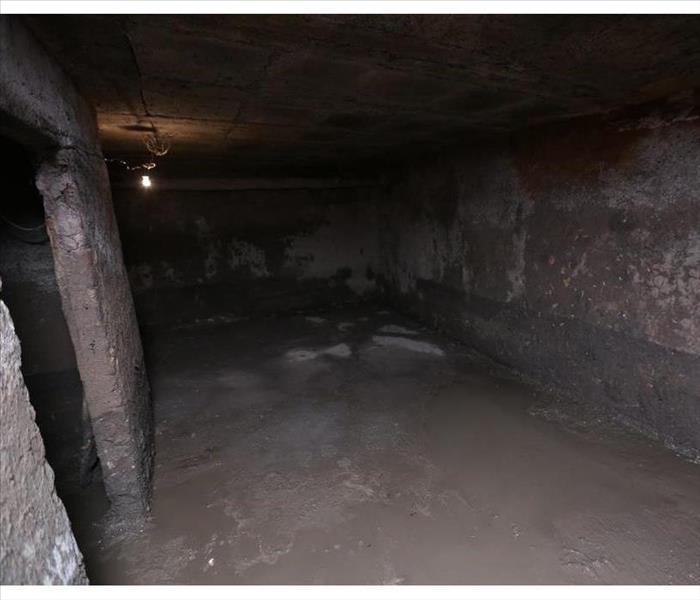Understanding the Main Causes of Basement Flooding and Sewer Backups
5/26/2022 (Permalink)
 A flooded basement is no fun. However, understanding the common causes and preventative measures can help reduce the likelihood of the experience.
A flooded basement is no fun. However, understanding the common causes and preventative measures can help reduce the likelihood of the experience.
Understanding The Primary Sources Of Basement Flooding And Sewer Backups
No homeowner wants to deal with a flooded basement. Unfortunately, sometimes floods are unavoidable. Still, according to water mitigation services in North Fort Myers, FL, there are some preventative measures you can take to prevent the top four causes of basement floods and backups.
1. Sewer Overflow
A severe storm can lead to an onslaught of water rushing to public plumbing systems. Unfortunately, when these systems are overloaded, it can result in sewers backing up. You can install sump pumps and backflow valves to prevent backups from occurring.
2. Clogged Pipes
One of the leading causes of a flooded basement is a clogged drainage pipe. Depending on where the blockage is located, there are several potential causes for the clog. For instance, when inside the home, the clog might stem from wadded-up paper products, grease, or other substances. When the block is outside the house, the cause could be an infiltration of roots or a collapse. The best way to prevent such issues is through routine and professional inspection and maintenance.
3. Blocked Gutters
While you might not think gutters could somehow cause a basement flood, you would be wrong. Blocked gutters do not allow for the free transportation of water from the roof to the ground. The blockage will typically result in flooded gutters. The water overflow then clings to the house and seeps into the soil at the foundation. If there are cracks in the foundation, the water can find its way inside. The best way to prevent gutter blockages is to clean them at the change of every season.
4. Landscape or Pavement Slope
Finally, if your landscape or driveway slopes back towards the house, you will likely experience basement flooding. Unfortunately, the only way to fix the problem is to re-slope the affected zones, which can be costly.
A flooded basement is no fun. However, knowing the common causes and preventative measures can help reduce the likelihood of the experience.





 24/7 Emergency Service
24/7 Emergency Service